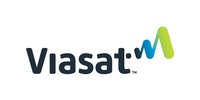Less than 10 percent of U.S. consumers are familiar with femtocells, according to a survey conducted on behalf of The Femto Forum by market research firm Parks Associates.
The devices have struggled to gain traction in the U.S. market as consumer demand for femtocells remains soft and carriers have given limited marketing for the devices, which the top three carriers bill as network extenders.
The report, which surveyed 1,100 U.S. mobile consumers over a two-week span in May, found that the primary driver for femtocell interest was improved in-home coverage. Important secondary drivers included increased mobile handset battery life, faster mobile broadband, advanced femtocell services and home-zone calling tariffs.
Simon Saunders, chairman of The Femto Forum, said the survey “presents persuasive evidence of the opportunity femtocells pose for mobile operators to improve customer satisfaction and loyalty while providing new and enhanced services.”
“This research has shown that consumers want the core benefit of improved indoor coverage, but they are excited about the advanced services femtocells can offer as well,” he said.
Once respondents unfamiliar with femtocells listened to a pitch about the devices, 56 percent found them appealing, reported The Femto Forum. Eighty-nine percent of the fraction of respondents already familiar with the devices also found them appealing.
Femtocell backers say the devices can improve customer satisfaction and bring in extra monthly revenue for carriers. The Femto Forum survey found that of the half of respondents interested in femtocells, about three-quarters were interested in an advanced service using the device. Half of those interested in advanced femtocell-based services said they were willing to pay between $4.99 and $9.99 per month for those services.
The survey also found that consumers were unwilling to pay high prices for femtocells. Of the small percentage of consumers already familiar with the devices who found them appealing, demand was highest when upfront device costs are in the $20-$50 range. That demand halved when femtocells cost between $50 and $100 and halved again when the cost exceeded $100.
AT&T’s 3G MicroCell costs $149.99, Verizon’s Network Extender costs $199.99 and Sprint’s Airave costs $99.99 with additional monthly fees.
Harry Wang, Parks Associates’ director of mobile product research, said in a report that the survey indicated “widespread appeal” for femtocells.
“There is a major opportunity for operators to gain new subscribers by taking over the contracts of whole families and by better retaining their existing subscribers,” Wang said. “However, operators need to build their business models on market share gains and new service revenues rather than on upfront device purchase revenues alone.”
Informa Telecoms & Media expects 49 million femtocell access points will be deployed by 2014.
Filed Under: Infrastructure




